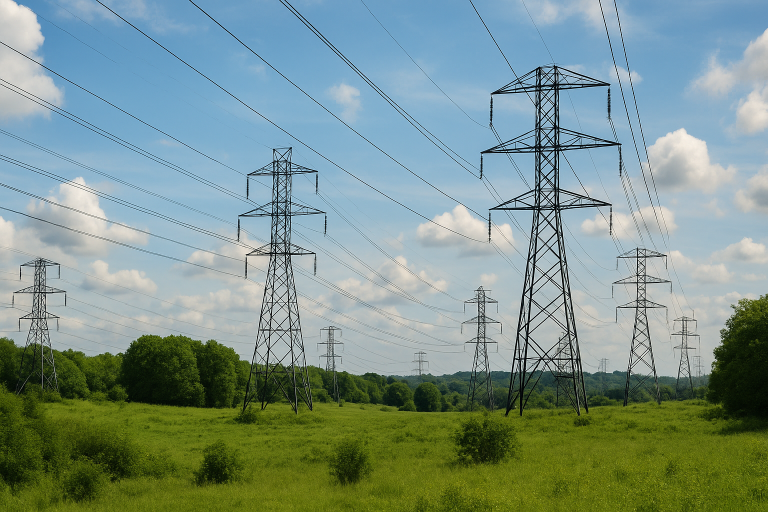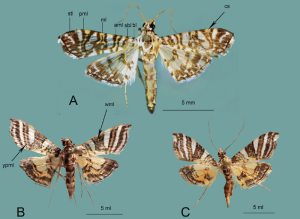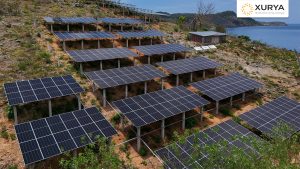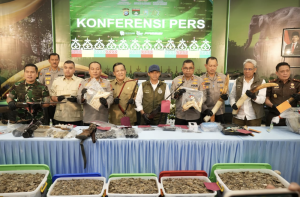Jakarta – The Indonesian Chamber of Commerce and Industry (Kadin) considers the issuance of green bonds by PT PLN (Persero) to be a strategic move to accelerate the development of new renewable energy (NRE) transmission while maintaining the confidence of global investors.
Deputy Chairman of Kadin for Energy and Mineral Resources, Aryo Djojohadikusumo, in an Energy Insights forum titled “The Energy We Share” in Jakarta on Wednesday, August 20, said that the biggest obstacle to energy transition is the funding of transmission infrastructure connecting renewable energy power plants with national electricity load centres.
“The internal rate of return (IRR) for transmission development is only around six per cent. In the business world, that figure is too small, so private investors tend to be hesitant to enter. Therefore, PLN must take the lead, and green bonds are the right instrument to support funding,” said Aryo.
According to Aryo, Indonesia has abundant clean energy potential, ranging from solar, hydro, wind, and biomass. However, without green financial support, this opportunity could be left behind by the surge in electricity demand that continues to increase.
“With green bonds, PLN is not only expanding its green transmission network, but also sending a positive signal that Indonesia is serious about accelerating the energy transition,” he said.
Green bonds are special bonds whose funds can only be used for environmentally friendly projects, such as renewable energy plants, energy storage systems, and green transmission. Other countries have widely used this financing model to increase the attractiveness of international investment.
PLN’s Senior Executive Vice President of Legal, Regulatory, and Compliance, Nurlely Aman, welcomed the idea. He said that the 2025–2034 Electricity Supply Business Plan (RUPTL) targets 76 per cent of additional capacity to come from renewable energy.
“The question is no longer what needs to be done, but how we can execute it together. PLN cannot do it alone; private sector support is essential,” said Nurlely.
The latest RUPTL also places Independent Power Producers (IPPs) as contributors of more than 70 per cent of clean energy investment needs. To that end, PLN continues to develop green financing schemes, including transition financing.
The need for low-emission energy is also felt directly by the business world. Subhan Aksa, CEO of Bosowa Corporindo, revealed that electricity consumption in South Sulawesi has grown by up to nine per cent per year. However, extreme weather phenomena have increased the risk of a supply crisis.
“In 2023, extreme drought caused hydroelectric power plants to run out of supply, forcing some industries to be sacrificed. This proves that renewable energy is not a burden, but an opportunity. However, without regulatory support, the private sector cannot operate optimally,” explained Subhan.
On the other hand, VP Operations DCI Indonesia, Lucas Adrian, highlighted the surge in energy demand due to data centre growth, which is expected to reach a compound annual growth rate (CAGR) of 20 per cent per year over the next 4–5 years.
“Data centres are major consumers of electricity. We must ensure that service level agreements are maintained, which means that the electricity supply must be stable. Green energy solutions are crucial to supporting Indonesia’s digital growth,” he said.
With investment needs for power plants and transmission estimated to reach Rp3,000 trillion, PLN’s proposal to issue green bonds is an important momentum for Indonesia’s energy transition to not only move forward, but also attract global support. (Hartatik)
Banner photo: Image generated by OpenAI’s DALL·E via ChatGPT (2025)















